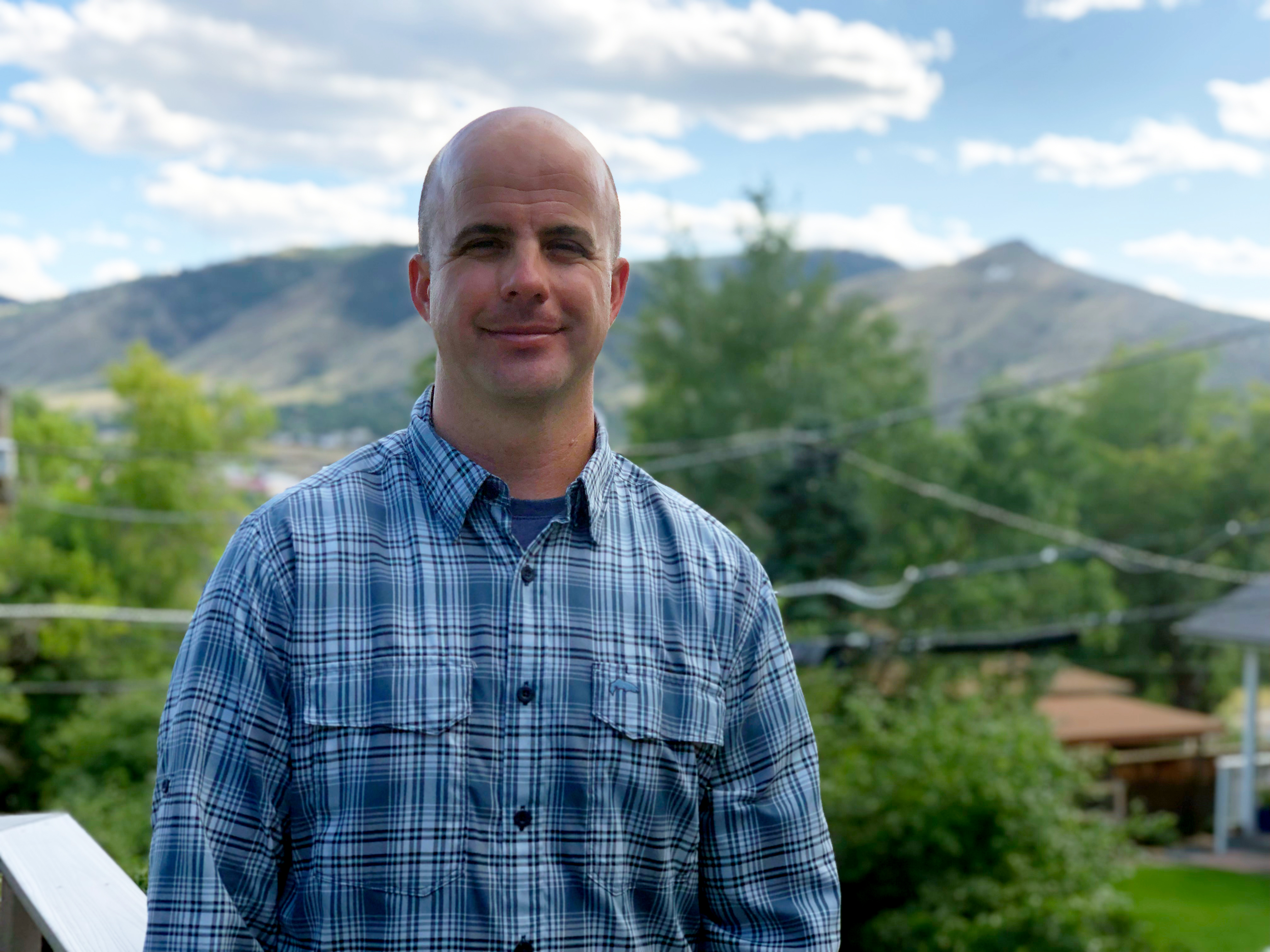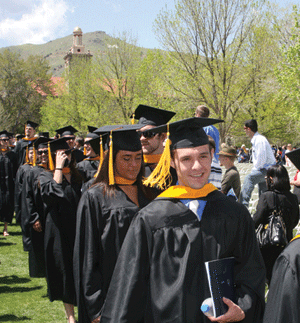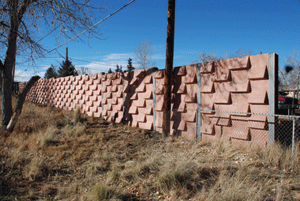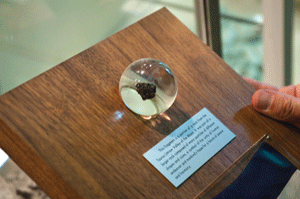Boots on the ground, in the lab

Though Lt. Col. Adam Brady MS ’12 is in Golden, Colorado, on assignment for the U.S. Army, you won’t find him shouting commands or driving a tank. Instead, you’ll find him in the lab or conducting field research as he pursues a PhD.
Unlike the average graduate student, Brady remains on active duty while working toward his doctorate in environmental engineering science and will eventually return to the United States Military Academy at West Point—his undergraduate alma mater—to teach environmental science courses.
“I have no other Army commitments right now—my job is to get my degree,” Brady said.
Brady has traveled all over the world during his 17-year military career, including four deployments to Iraq, a deployment to eastern Africa and assignments in Kentucky, Texas, New York and Hawaii. For now, though, he’s happy to be in Colorado.
This is the second time Brady has been stationed in Golden. After serving in a variety of military roles, Brady decided he wanted to teach at West Point, a position that requires at least a master’s degree. He applied to a special military program that sends officers to graduate school and earned his master’s degree in environmental science and engineering from Mines in 2012. Afterward, he taught at West Point for two years before returning to Army operations positions. He came back to Mines in 2018 through the same program to earn his doctorate.
The U.S. military academies produce almost one-fifth of all officers, so Brady was excited to help shape the next generation of military leadership at West Point. “I enjoy providing mentorship, guidance and support in the development of those soon-to-be leaders,” he said.
With several deployments and far-flung assignments already on his resume, Brady is grateful for the stability this assignment provides his family. And assigning Brady to earn a PhD from a leading institution also helps West Point achieve its primary mission of educating the Corps
of Cadets, while also strengthening the Army as a whole.
“The military uses these ‘broadening assignments’ as an opportunity to expand the experiences of an officer and to demonstrate a different way of thinking about problems and possible solutions,” Brady said. “By providing opportunities to attend graduate school, the military is creating diversity of thought. In turn, this adds diversity to any organization those officers join, creating a stronger team.”
Brady’s doctoral research centers on the use of wetlands for passive treatment of impaired waters. More specifically, he’s interested in making wetlands smaller and more efficient so they’re viable options in urban areas where land is in short supply.
His group is focused on water systems that are impaired by nitrogen, which comes from wastewater treatment plants, runoff from agricultural uses and industrial discharges.
“Right now, if you imagine a wetland, you might think of a big pond with plants growing out of it,” he said. “But land is expensive, especially in cities and urban areas. We’re looking at how to keep the same level of nitrogen removal but making the footprint smaller so that municipalities are more willing to use them.”
Though the research isn’t directly related to any specific military projects or initiatives, it will inform Brady’s teaching of ecology, environmental science and environmental engineering classes back at West Point.
So while his path may be unconventional, Brady’s military assignments have taught him how to be an effective team leader—both overseas and in the classroom.





